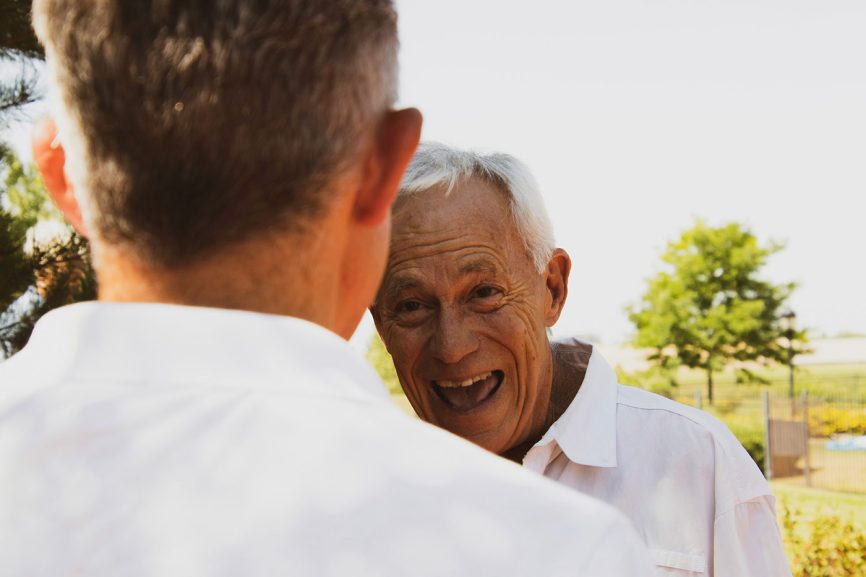Reflections from a church working on wisdom
by: Rev. Dr. Anna Hall
In researching the gifts and possibilities of aging churches, I have enjoyed learning about the Sage-ing Committee at Myers Park Baptist Church in Charlotte, NC. This group organizes activities and initiatives to promote spiritual and wisdom development in the church’s older adults. Sage-ing Committee member Betsy Thigpen has these reflections on their work so far:
Myers Park Baptist Church membership rolls show 426 members over the age of 65. A number of these seniors have either moved to another city or for health or medical reasons may not be able to participate in an active program to move Seniors to Elders. But with new technology such as Zoom and with the new and recent focus on how to age consciously, there are multiple possibilities for most seniors to navigate the third stage of life with meaning and continuous development towards wholeness. Seniors can learn a new way to live in the world as a Wise Elder.
The third stage of life can be reimagined as a journey connecting us to a spiritual essence that has inherent value and does not depend on productivity, accomplishments, or self-image.
The Inner Work of Age: Shifting from Role to Soul, Connie Zweig (2021)
Twentieth-century data reveal a remarkable increase of more than thirty years in average life expectancy in the United States. Society is essentially experiencing a “longevity revolution,” when for the first time in evolution, one can reach 65 and reasonably speculate that they could live for three more decades.
While living a significantly longer period of time is obviously good news for seniors, aging can and should be more than a consequence of the passage of time. A reasonable question for one approaching the third stage of life is, “What story of aging do I want to live out for the next two to three decades?”
Many seniors are waking up to the potential for a radical reimagining of what Carl Jung called the third stage of life. As Jung reflected:
A human being would certainly not grow to be seventy or eighty years old if this longevity had no meaning for the species. The afternoon of human life must…have a significance of its own and cannot be merely a pitiful appendage to life’s morning.
Jung and Aging: Possibilities and Potentials for the Second Half of Life, Leslie Sawin, Lionel Corbett, and Michael Carbine, Editors, (2021)
The third stage of life does, indeed, have a significance of its own. Contrary to the message typically received from western culture on aging, the third stage of life holds the potential for being one of the most productive, creative, and meaningful periods of life. Those willing to intentionally place themselves on a path of moving from senior to wise elder have a plethora of resources such as organizations like The Center for Conscious Aging and Connie Zweig’s recent book, The Inner Work of Age: Shifting from Role to Soul.
THE ROLE OF WISE ELDER
So, what is a Wise Elder? In general, Elders are characterized by continuous growth toward wholeness of body, mind, and spirit for as long as they live. Older and elder are not the same thing. Wise Elder is a role that is consciously and intentionally chosen and requires preparation and continuing growth at all levels – physical, psychological, and spiritual.
Ron Penvy, founder and director at The Center for Conscious Eldering holds that a call to the role of Elder is built into the human psyche. Penvy says that every senior has the potential to accept this call to a deeper and more meaningful life. (The Center for Conscious Eldering)
Connie Zweig, retired Jungian psychotherapist, uses wisdom from well-recognized Elders from a variety of faith traditions to identify specific developmental tasks for the third stage of life. In her recent book, The Inner Work of Age: Shifting from Role to Soul, Zweig offers groundbreaking ideas, tools, and practices for transitioning from “unconscious senior to wise elder.”
How fortunate for seniors to finally have authors, analysts, and spiritual guides to encourage them toward a deeper dimension of aging. This newfound freedom of aging consciously will use valuable experience, wisdom, and creativity to enhance individual personal and spiritual growth as well as making valuable contributions to our society and our world.
THE WISE ELDER JOURNEY
As this new journey is explored and continues to evolve, consider these questions:
- Does continued existence at age 70, 80, or even 90 have value?
- How do seniors go beyond just existing in a fairly well-preserved body and mind or creating just enough financial resources to keep them reasonably happy until they die?
- How do seniors connect to a stronger spiritual essence that leads to an enriched life of increasing wholeness and fulfillment?
- What are the spiritual and contemplative practices that take us down a path of becoming an Elder?
- Does the third stage of life have a purpose that can benefit not only seniors themselves, but others, our society, and the world?
- How do seniors embrace and learn the process for moving from Senior to Wise Elder?
The transformation from Senior to Wise Elder requires a reimaging of age, a rebirth, or as the Jewish faith so wisely calls it, a second Bar Mitzvah. It is a new way to live and be in the world as Wise Elder, and to live and mentor from a place of wisdom that benefits the individual as well as the larger community.
Elderhood: Redefining Aging, Transforming Medicine, Reimaging Life, Louise Aronson (2021)
A growing older population needs guidance and intentional opportunities to discover meaning and purpose in becoming whole and living as a Wise Elder. Churches with senior members have unexplored opportunities to reimagine aging. Recognizing these needs and opportunities, Myers Park Baptist Church supports the transformation of Senior to Wise Elder and will explore a reimagining of aging to provide opportunities for members to pursue the journey of moving from Senior to Elder.
-Betsy Thigpen, Sage-ing Committee member (Email Betsy).
If you are interested in sharing your story of growing wisdom in your congregation, or if you would like help developing your own Wisdom initiative, reach out Convergence. Email Anna Hall now. She would love to hear from you.



Comments
The subject line piqued my interest as a 68-year-old navigating the retirement transition and role in the church.. As a Presbyterian (USA) minister I’m a member of presbytery, the regional body composed of congregational representatives. But I’m also involved in a congregation where my spouse is a new member. So I’m neither fish nor fowl, or maybe both. I don’t currently have a particular role, but I do have experience, observations, thoughts, ideas, and maybe some wisdom. But there’s no structure at the presbytery level for “recognizing the needs and opportunities” for supporting the transformation from “retired minister” to “Wise Elder” and incorporating that wisdom.